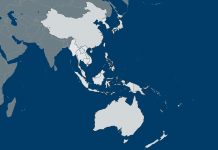The trilateral security partnership comprising the United States, the United Kingdom and Australia – known simply as AUKUS – is among the most interesting alliances in recent memory, and it has the potential to be among the most consequential in the world in 2024.
Uniting three countries that fought together in both world wars and a variety of lesser conflicts, AUKUS can be thought of as an offspring of the Five Eyes, a post-World War II intelligence-sharing initiative formed by the U.S., the U.K., Australia, Canada and New Zealand that is very much active even today. It is also what Winston Churchill had in mind when he wrote “A History of the English-Speaking Peoples,” which was as much a celebration of the nations the U.K. spawned as it was a history of nations themselves.
Implicit in the formation of the Five Eyes was that its members alone were to be trusted with one another’s secrets. This owes partly to the fact that they all share strategic interests – that because they are all maritime powers, theirs are the dominant interests in the world’s seas. (After all, it was the threat posed by German ships that helped draw the U.S. into World War II as it supplied and supported Britain.) But it also owes to something more: Although the Five Eyes is primarily a military alliance, its members generate nearly 30 percent of the world’s gross domestic product, and they have similar cultural, political and commercial understandings.
AUKUS has a strategic purpose, of course. Originally billed as a mechanism to help Australia acquire nuclear-powered submarines, it will eventually involve enhanced intelligence sharing, indigenous military-industrial capabilities, tighter security operations and the joint development of new weapons. But in no uncertain terms, its objective is to contain China’s navy and prevent it from dominating any part of the Pacific.
But it is not only the Pacific with which it is concerned. The Atlantic is not at risk right now, but just as it was a central figure in both world wars, so too could it be in the future. AUKUS members understand that any existential threat they face will come from the sea. Its members are all islands – even the United States, which essentially must defend the seas around it. And while the U.K. is the geopolitical model off which AUKUS is based – an island that fought with economics, technology and financial markets among many other theaters of war – the U.S. has replaced Britain as the center of gravity in the international system and must therefore be prepared to support its fellow members. (Anecdotally, I once was invited to a conference organized by the Australian air force. Everyone wore the uniform of their respective country, but everyone was comfortable with the idea of the alliance being their natural condition.)
No alliance is immune to tension, and AUKUS is no exception. Yet 2024 will bring its members closer together, with New Zealand likely joining their ranks and Canada considering the same. This affects the world profoundly. The alliance is now primarily a naval one, but its economic might cannot be ignored, especially because it is arrayed specifically against China. In some ways, AUKUS is the natural outcome of global culture and national interests. The acquisition of nuclear submarines and aircraft simply represents that truth. The economic reality of AUKUS will begin to be felt more heavily as China’s economy remains unstable and as it becomes a more sophisticated alliance, incorporating all dimensions of power into its mission. Military is the most obvious aspect of national power, but there are many facets, and this coming year will be devoted to aligning that power and using it on a global level, as New Zealand and Canada align their realities.







